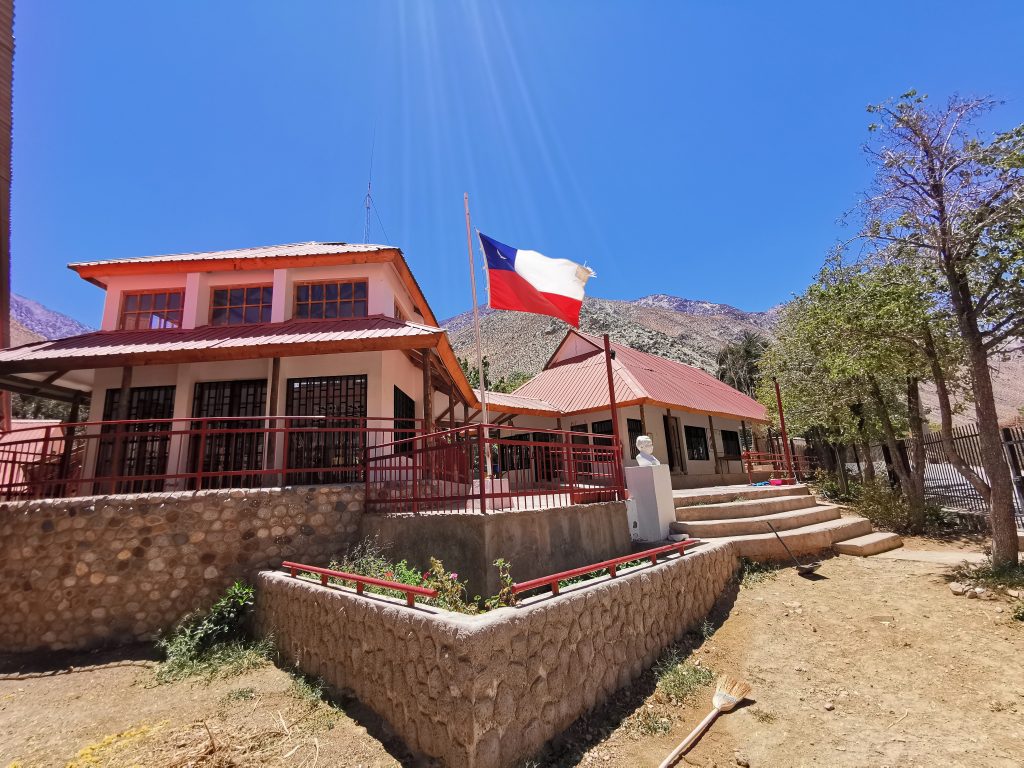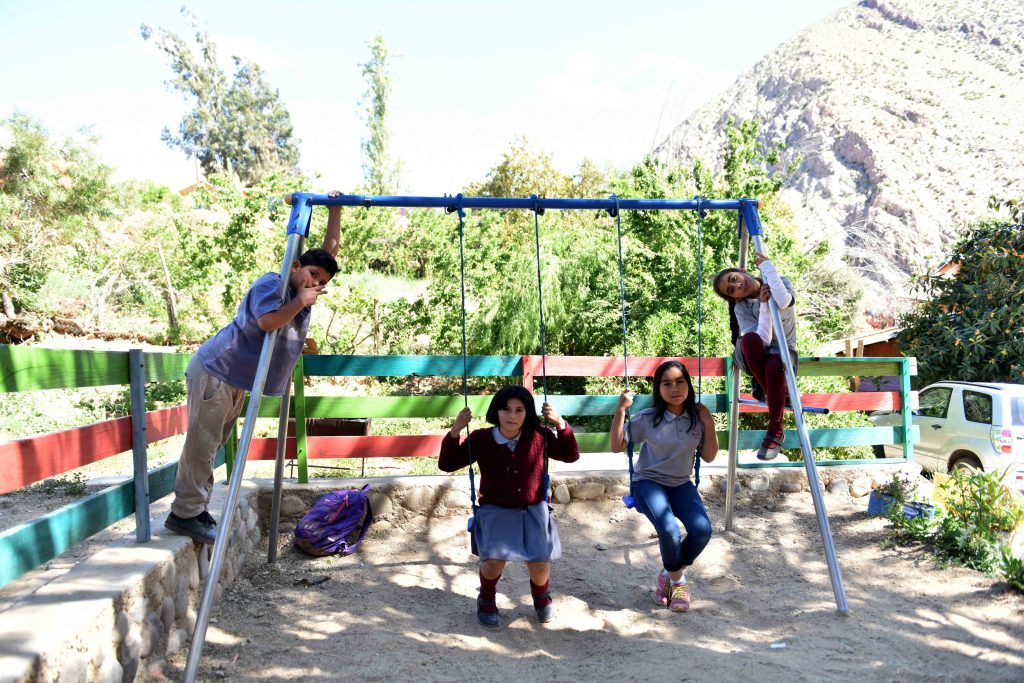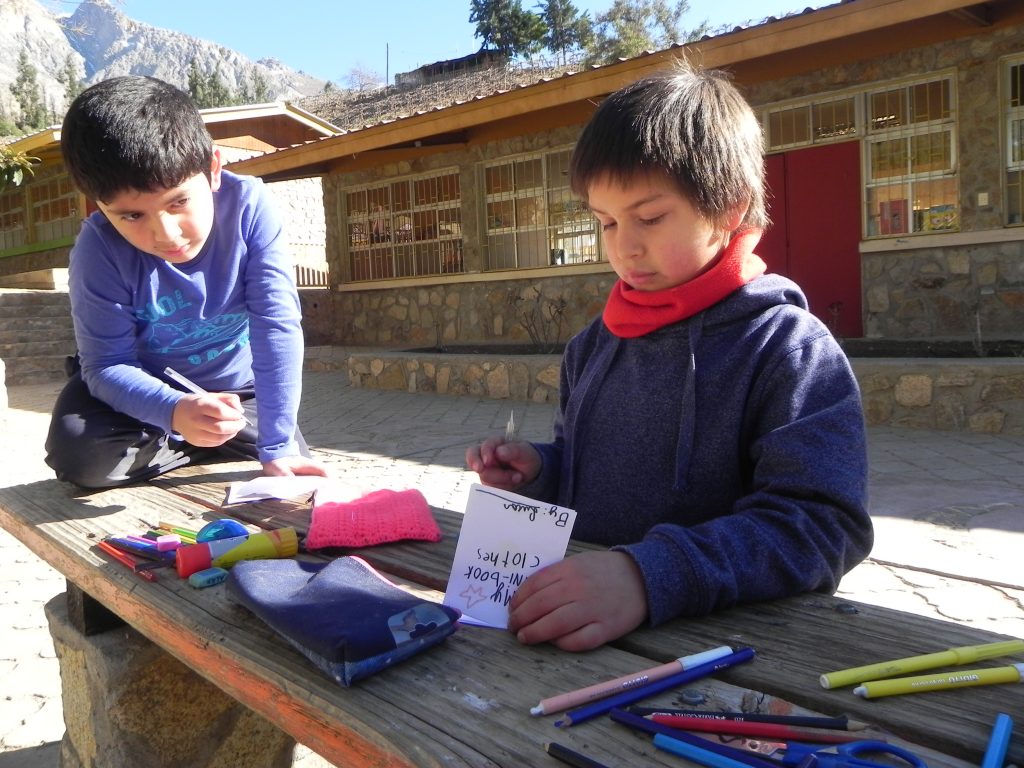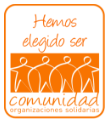The María Isabel Peralta School is a multi-grade school with an enrolment of 11 students. It is located in Cochiguaz, a rural town in the commune of Paihuano, in the Elqui Valley, where internet or access to technological devices is often not a priority or something very accessible for the daily life of its inhabitants. And in view of the difficulties to continue with the educational process of their students as a result of the pandemic, the school decided to coordinate the delivery and installation of the school's equipment with different software, activities, games and videos, so that the six families that make up their community could continue to support the learning of their children.

"Here in rural areas," says director Víctor Fuenzalida, "without ever leaving learning aside, we focused mainly on the emotional support of our students because we knew that this was going to be difficult.
He points out that the situation at María Isabel Peralta School is unique not only because of the number of students, but also because it does not have an internal organisation like the rest of the schools: "I am the teacher, the director and I am in charge of school coexistence. We have the advantage of being a microcentre and we have some teachers who are flying, such as the physical education teacher, the jazz teacher and the English teacher," he explains.
Alejandro Fuenzalida is the English teacher and, from a professional point of view, he says that this process has been extremely challenging: "This period has also allowed us to investigate and look for accessible tools for our students. In Paihuano we have very diverse realities, where there are boys and girls with situations in which an online modality can be implemented, but there are other cases of children who live in remote places, where connectivity is very low, and the challenge has been precisely not to interrupt and diversify the educational process of these realities".
Diego Berenguer is the guardian of Pakal, who is in third grade at the school, and says that the great advantage of living in quarantine in a remote place is that it has meant not feeling the effects of confinement, but the social distancing for his family has not been an easy issue: "We can be with them all day and emotionally they are fine. Here in the Elqui Valley the confinement is not as noticeable as, I imagine, it can be in a flat. We have the possibility to occupy our yard and even go to the river, but the little ones miss being with their friends a lot.

Víctor Fuenzalida explains that at the beginning they thought that the confinement and closure of the school would be brief. It was with this in mind that the team began to prepare and deliver the material for their students in the form of work guides. "Suddenly it began to take longer than expected and, at the same time, we began to coordinate meetings with all the school heads and with the DAEM to analyse what measures we could take," says the director.
Teacher Alejandro Fuenzalida says that the suspension of face-to-face classes was abrupt for the school, especially given the changes that had to be implemented and considering that the team had already launched the annual planning. "We had to build up gradually. The Mineduc required us to focus on the core subjects, and in the case of English we had to adapt the teaching in that direction, which meant that at the beginning, due to a curricular prioritisation issue, I didn't have an immediate response regarding the materials I sent to my students.
As a result of the guidelines and meetings with the head of DAEM Vicente Olguín, a support plan was generated and promoted by the Mineduc, through a series of materials, tools and virtual platform options that each microcentre could adapt according to its context.
"The Mineduc is starting to distribute material online," says Victor Fuenzalida, "and obviously that material requires the student to have a computer. While our community can access the internet, many don't have the right equipment or phone plans and can only browse through the only prepaid phone the family has. Without going any further, our school has a case of a household that must generate electricity with a motor, so charging the phone becomes a necessity of a different order or they only turn it on at specific times".
During the holiday break in April, and faced with the uncertainty of not knowing the return date, the school had to devise a strategy that would allow them to support the learning process of their students. " As the school had received four new computers and the DAEM had specified that all of the school's material could be made available to our students, I asked for permission to load the material onto the new computers and two old ones and to coordinate the installation in homes," says Victor Fuenzalida.

In these teams, the establishment was in charge of uploading videos with tips, work guides, emotional support with activities from the psychosocial team and educational capsules and guides from the English workshop area.
"I managed to set up an Instagram account, whose objective was to include explanatory videos for students and parents," says Alejandro Fuenzalida. "The idea of presenting the workshop in this format is focused on oral work and concepts associated with the first unit of first grade, the human body and animals, with playful activities, such as children being able to record themselves showing and describing their pets".
"We are currentlydesigning other types of capsules to send not only content, but also other types of activities that, through songs and games, can relax the students," says the teacher.
"We have been able to support our children so that they don't interrupt their learning, but it has been a complex issue to deal with," says Diego Berenguer, "because although we have made sure to set up an exclusive space for study and the installation of the computer has made their routine a lot easier, they miss not being able to do their activities at school, they miss the contact with their peers.
This initiative is part of the document "Educational communities: 6 stories of innovation in times of pandemic" which you can download in full at this link https://bit.ly/2DGXlJ6





